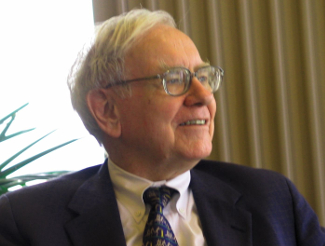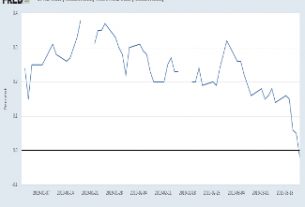Stock market investors are notorious for using ratios of various types to determine the proper valuation of a stock. The use of ratios extends to analyses of the overall stock market. And one of the ratios that many investors look at is flashing major warning signals that stock markets are incredibly overvalued and headed for a major downturn.
The “Buffett Indicator” is the colloquial term for the ratio of total stock market capitalization to GDP. When that ratio rises to unsustainable levels, it’s usually a sign that a stock market crash is imminent. The long-term average for the Buffett Indicator is 83.54%. But before previous stock market crashes, it has risen to nearly 150%. Currently the ratio sits at 156%, higher than it was before the dotcom bubble burst, a worrying sign that stock markets are primed for a major plunge.
Publicly available data only goes back to 1996, but looking at the chart you can see that a rise in the Buffett indicator to over 130% is generally associated with a recession in the near future. When the ratio falls back to more normal levels during a crash, it wants to revert to levels closer to the long-term average.
The Buffet Indicator is so-named because it is supposed to reflect Warren Buffett’s approach to investing, choosing to invest in stocks that are undervalued and rejecting those that are overvalued. With the Buffett Indicator currently at 156%, it’s a clear sign that stock markets are overvalued and headed for a major correction.
Buffett himself has been largely sitting on the sidelines due to excessively high stock valuations. His stash of cash is building up, and he’s even sold some of his losing positions. But there’s nothing he sees worth buying because stock prices are excessively high. That should be an indicator to ordinary investors that markets are peaking, a crash is around the corner, and they need to get prepared.
Many investors are making the move into gold, trying to lock in the gains they’ve already made in stock markets while protecting themselves against future losses. With a stock market bubble as big as the one we’re in right now, the downturn could make 2008 look minuscule by comparison. Those who aren’t prepared already need to start preparing, lest they find themselves taking major losses to their investment portfolios.
Image: Mark Hirschey
This article was originally posted on Goldco.




